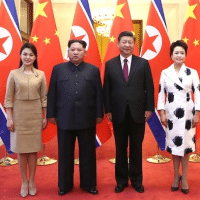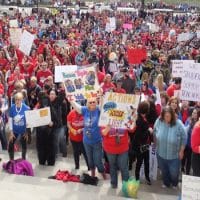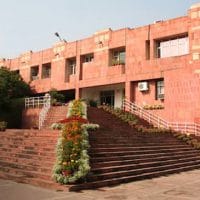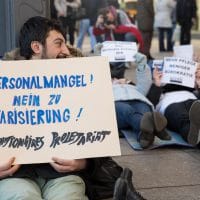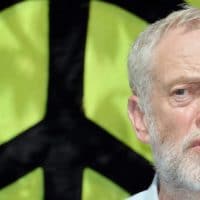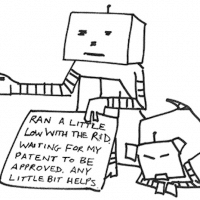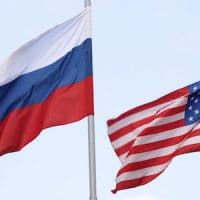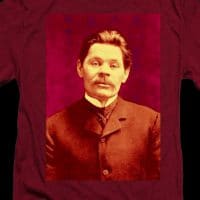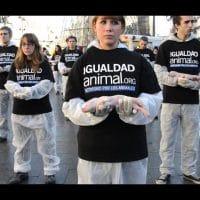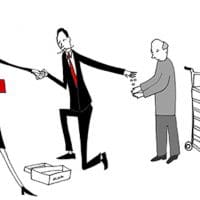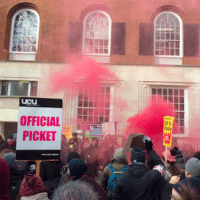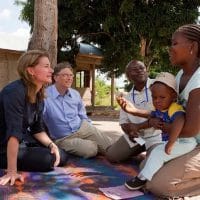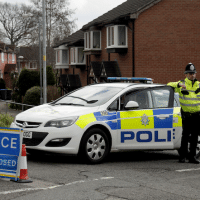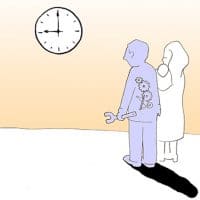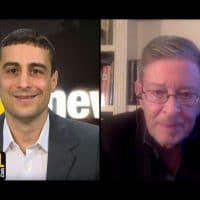-
Kim Jong-un restates his commitment to denuclearization. But will U.S. make way?
With the acceptance of Chinese President Xi Jinping’s invitation, North Korean leader Kim Jong-un visited China from the 25th of this month to the 28th, for the first time since assuming office in 2011. Timed just before Kim’s meeting with the South Korean President Moon Jae-in the next month, followed by a summit with U.S President Donald Trump-where the prospects of denuclearization is expected to be discussed-this meeting with Xi Jinping, in which Kim has reaffirmed his commitment to denuclearization, has been seen my observers as a crucial diplomatic development.
-
Teachers strikes fever spreads
It started with a few hundred West Virginia teachers and school employees pulling one-day walkouts. It became an unqualified victory in that state, which educators elsewhere were quick to emulate.
-
Commoditisation and the public sphere
The commoditisation of education which makes it completely incapable of providing students with the wherewithal to engage in any active and worthwhile public discourse, has proceeded apace under the neo-liberal regime.
-
Precarious work and contemporary capitalism
Unions have no choice but to put major resources into confronting the reality of precarious work and organising around whatever can be won in the workplace. Otherwise they will simply wither.
-
Ecological destruction in the name of science
How has a science focused on capital accumulation been used to overturn tried and true models of agriculture to the detriment of the environment and indigenous livelihoods?
-
Jeremy Corbyn has a long and honorable record of opposing fascism, racism and anti-semitism
The Labour leader played an active part in organising against and resisting the National Front in the late ’70s.
-
Interview with Joseph Halevi
Joseph Halevi was born in 1946 in Haifa, which then was part of British Palestine but since 1948 in Israel. Most of his earlier life was spent in Rome, where he graduated in Philosophy and Political Economy. He has been Professor of Economics at the Interna-ional University College Turin, Italy, since 2010.
-
Technology and capitalism 150 years after Das Kapital
Today, one hundred and fifty years after the publication of the first volume of Capital, Marx remains our contemporary.
-
How the United States ‘hacked’ Russia’s elections in the 1990s
In a recent interview that went viral, Russian President Vladimir Putin repudiated NBC journalist Megyn Kelly, when she pressed him on the so-called “Russiagate” scandal.
-
The stormy petrel
In Moscow there has been something like a revival of interest in the immortal Alexei Maximovich Peshkov, who called himself Gorky, the Bitter One. Even Gorky’s portrait, which had been removed from the title page of the influential literary magazine Literaturnaja Gazeta, is shining there again next to Pushkin’s.
-
The danger of being wrong about animal rights
Dogs and suitcases are personal property under the law. For the most part, that enables humans to use, neglect, and abuse them indiscriminately. Dogs and other nonhumans have been property at least since the invention of money as suggested by the common etymologies of “chattel,” “cattle,” and “capital.”
-
Marx’s concept of class
The concept of class poses profound problems for theory and practice. This is true across the academic disciplines and in the confused incoherence around “class issues” when concepts of class surface in economic, political and cultural discourses.
-
University strikes: where do we go from here?
On February 22nd the University and College Union (UCU) called for the beginning of a nation wide strike in response to Universities UK’s (UUK) attempt to shift of the Universities Superannuation Scheme from a defined benefit pension to a defined contribution pension.
-
Under the cover of philanthropy: a monopoly machine at work
The long-term costs of allowing a handful of corporations to take over healthcare and agriculture in developing countries, in exchange for vaccinations and hybrid seeds sold at discounted price, will be paid by populations in the Global South once the process of monopolization is complete.
-
Russia suggests UK possessed nerve agent that is “quite artificially” being linked to Moscow
Russian officials are voicing a full-throated dismissal of British accusations that Russia used a nerve agent referred to as “Novichok” in an attack on former Russian spy Sergei Skripal and his daughter Yulia. The Russian Ambassador to the U.K., Alexander Yakovenko, is further charging London with making accusations in poor faith, while raising questions over whether the poison was already in the possession of the British government.
-
The vision of the new society in Marx’s Capital
Marx’s Capital has been heralded for many things, but providing an exhaustive account of a future socialist society isn’t one of them.
-
Working Document 1: In the ruins of the present
Raoul Peck, the Haitian lmmaker, opens his film—Der Junge Karl Marx (2017)—in the forests of Prussia. Peasants gather fallen wood. They look cold and hungry.… Some of the peasants die. Even fallen wood is not allowed to them.
-
Who will stop the U.S.-Russia arms race?
President Trump is drawing heat for congratulating Russian President Vladimir Putin on his re-election victory. During a phone call with Putin this week Trump reportedly ignored a written directive from his aides that instructed him, quote, do not congratulate. Speaking to MSNBC, Democratic Sen. Mark Warner echoed the outraged response from Republican Sen. John McCain.
-
Surveillance capitalism and the state: Facebook devastated on multiple fronts as data theft crisis grows
Material collected by Cambridge Analytica via Facebook quizzes—which included detailed psychological profiles of unsuspecting users for the purpose of “behavioral microtargeting”—was used by the campaigns of Ben Carson, Ted Cruz, Donald Trump, and right-wing Super PACs tied to billionaire Robert Mercer.
-
Gun controls in old East Germany
Strict weapons’ laws in the old East Germany, undoubtedly a restriction of on freedom, meant that there were virtually no shooting deaths and never a single mass shooting, in schools or anywhere else.

